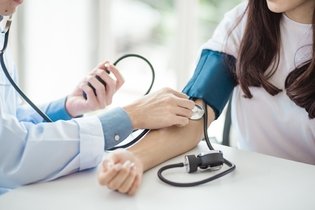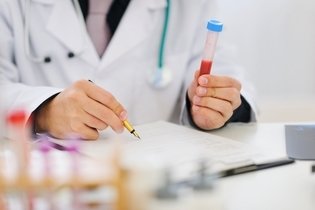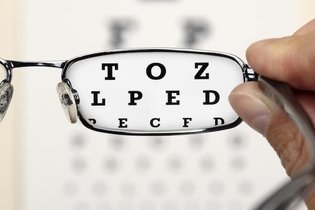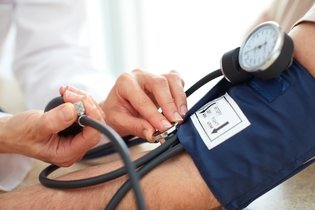High blood pressure symptoms, such as blurry eyesight or headache, generally only occur when blood pressure is already too high. This is referred to as a hypertensive crisis. Many people can walk around with high blood pressure and have no idea, as some do not present with any symptoms at all.
If you suspect your blood pressure might be high, it is recommended that you measure it as soon as possible, at home or at a pharmacy. To measure your blood pressure correctly, ensure your bladder is empty and rest for about 5 minutes before checking. If your blood pressure is confirmed to be elevated, you should follow-up with your doctor.
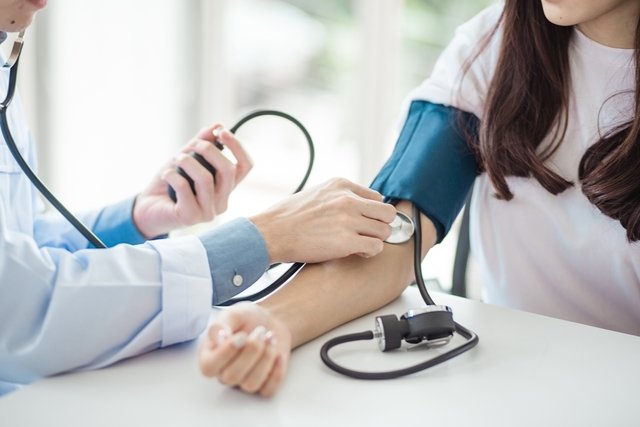
Main symptoms
High blood pressure symptoms can include:
- Nausea;
- Frontal headache;
- Pain in the back of the head;
- Sleepiness;
- Buzzing sound;
- Blood-shot eyes;
- Double vision or cloudy vision;
- Breathing problems;
- Heart palpitations.
These symptoms generally happen when blood pressure is already severely high. If you notice these symptoms, proceed immediately to the emergency room and take any medication prescribed by the doctor..
Although high blood pressure is a silent condition, it can cause very serious health problems such as heart failure, stroke or loss of eyesight. You should check your blood pressure at least once a year.
What to do if you have a hypertensive crisis
When pressure increases suddenly and symptoms like headache, especially at the back of the head, sleepiness, difficulty breathing and double vision appear, it's important to take any medication as prescribed by the doctor and to rest and try to relax. If your blood pressure continues to be higher than 140/90 mmHg after an hour, you should follow-up with your doctor immediately or proceed to the hospital.
Learn about home remedies that can help lower blood pressure.
High blood pressure during pregnancy
High blood pressure during pregnancy, medically known as pre-eclampsia, can lead to strong abdominal pain and swollen feet or legs, especially at the end of pregnancy. If this happens it is important to see your obstetrician as soon as possible to start adequate treatment and prevent serious complications, such as eclampsia, which can harm the baby.
See what to do to lower high blood pressure without using medication.

